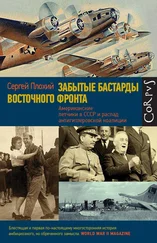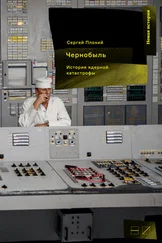It all made little sense if one looked at the results of the two managers’ work, especially their fulfillment of production quotas. Kyzyma and his crews failed to build any unit of the nuclear power plant on time, while Briukhanov and his engineers invariably fulfilled or overfulfilled their quotas. The previous year, 1985, was no exception. That year, the four units of Briukhanov’s power plant produced 29 billion kilowatts of electrical energy, as much as all the power stations of the then united Czechoslovakia, enough to power 30 million Soviet apartments, housing roughly half the Soviet population of 280 million, for the whole year. They had overfulfilled their quotas by more than 9 percent, reported the Prypiat newspaper Tribuna ėnergetika [Tribune of the Energy Worker] in January 1986. The same issue featured a brief note titled “Why Has the 1985 Plan for the Nuclear Power Plant Not Been Fulfilled?” It was not apparent from the title that the article concerned the failure to meet construction quotas. 3
Still, Vasyl Kyzyma was not only spared public criticism but also showered with attention from his superiors. There was a simple reason for that: given the constant shortages of labor and materials, the higher-ups considered the supervision of construction a much more challenging task than that of running the plant itself. And Kyzyma had shown his ability to do the job better and faster than most of his rivals.
A native of the Kyiv region, Kyzyma was born in January 1932 into a peasant family in Tarashcha Raion, south of the city of Kyiv (a raion is a district similar to a county). He was only one year old when the Holodomor—the Great Ukrainian Famine—struck the region. He was lucky to survive: every third citizen of the raion died of hunger. In neighboring Volodarka Raion, the death toll was even higher—466 of every 1,000 residents did not live to see the year 1934. The mortality rate was especially high among children and the elderly. Kyzyma also survived the brutal Nazi occupation of Ukraine from 1941 to 1944. After graduating from the local school, he studied engineering in Kyiv and cut his teeth on the construction of coal power plants in western Ukraine. Kyzyma returned to his home region in 1971 to take charge of the flagging construction of the city of Prypiat and the nuclear plant nearby. 4
From the very start, Kyzyma told his superiors that there could be only one boss on the construction site: emissaries from the Kyiv ministries could pack their bags and go home. They did so. But in the city itself, Kyzyma had to share power and prestige with Briukhanov and his people at the plant. While Briukhanov was regarded as competent, but reserved and not very sociable, Kyzyma combined the expertise and toughness of a construction foreman with the magnetic personality of a politician. Kyzyma’s bosses praised his strategic thinking, but they were somewhat concerned about his canniness; construction workers considered him one of their own, and his subordinates emphasized his toughness.
Briukhanov was respected, but Kyzyma was either idolized or feared, depending on one’s circumstances. Eventually the two men learned to work together and respect each other. Ultimately, they had a common cause, with the plant administrator being the customer and the construction directorate the vendor, each depending on the other in many ways.
Personal relations between the two masters of the city aside, there were also managerial, social, and cultural tensions between their teams. Most of Briukhanov’s people were top-notch, highly educated engineers who came mostly from Russia, bringing to Prypiat not only their expertise in running the nuclear plant but also their big-city habits, culture, and, occasionally, arrogance. The locals who manned Kyzyma’s construction crews were often former villagers with their own habits, culture, and prejudices. The newcomers spoke Russian, the locals largely Ukrainian, with surzhyk —a mixture of Russian and Ukrainian—emerging as the lingua franca of Prypiat’s streets.
Managing tensions between the two groups and preventing occasional clashes among local youths and the young construction workers brought to the city by Kyzyma, known as “Rexes,” were among the responsibilities and headaches of the Prypiat police. Most challenging were the two days when the workers received their pay, first an advance and then the rest of the salary. Celebrating both paydays by getting together and drinking was a long-established Soviet custom. The police took no chances and went after any young men who appeared on the streets in groups of more than five. It helped only to a degree. In 1985, officials had to deal with a youth riot that resulted in turning over cars and breaking windows. 5
Nuclear power plant workers of all ages were often envied by those who worked in the construction directorate—their salaries were higher and working conditions better, and they moved from dorms into apartments faster than those who were actually building the apartments. The construction workers believed that the atmosphere at their building sites was better, and that their workmates were open and straightforward, whereas those at the plant were canny and calculating. The plant workers generally disagreed. 6
Kyzyma ran his directorate like a huge peasant household. The heads of the directorate’s units dreaded his invitations to the Romashka, one of the plant’s dining halls, for a meal of Ukrainian borscht. At the head of the long table, in the spot reserved for the family patriarch, sat Kyzyma, with his “children” (subordinates) on both sides. “All sat silently spooning their borscht when suddenly the quiet was broken by [his] voice, … not angry, but decisive and insistent, saying that this group of deliverymen had not brought a crane to the building site at the appointed time, or that concrete factory had not completely filled the order of the concrete-pouring brigade,” recalled a journalist who had been invited to one of Kyzyma’s working lunches. Kyzyma had a superb memory and not only knew his numerous subordinates by first name and patronymic, but also remembered, in detail, all the particularities of their tasks and the resources at their disposal. 7
Kyzyma was known to be a true patriot of the city, able to find money and resources to construct not only the plant but also the public buildings, the housing, and the infrastructure of Prypiat. He also resisted pressure to build quickly, preferring to build well. When party leaders reprimanded him for slow work on the Prypiat palace of culture, he referred to the St. Volodymyr Cathedral in Kyiv as an example. The cathedral had taken decades to build but was still standing, he told a surprised party official, who could hardly imagine a worse ideological sin than that of comparing a socialist palace of culture to a church. Kyzyma did not mind. He not only took his time, but insisted that the palace he built would be the best in Ukraine. He obtained scarce marble for its walls, aluminum parts (almost impossible to acquire in the USSR) for its infrastructure, and rare varieties of wood for its floors. The crews that installed the wooden floors in the Prypiat palace of culture were the same ones that had restored the imperial-era tsarist palace in Kyiv. 8
The construction of Unit 5 at the Chernobyl power plant presented Kyzyma with a new set of problems. He had built reactors before and figured out how to do so with minimal delays. But now, with the party authorities in Moscow rushing to launch as many reactors as possible, the time frame for the construction of the new unit had been cut from three years to two. Construction had begun in 1985 and was supposed to be finished by the end of 1986. The new all-Union minister of energy and electrification, Anatolii Maiorets, who had suggested, at the party congress in February 1986, that the time line for the construction of multiunit nuclear power plants could and should be cut from seven years to five, was eager to make his mark on the industry.
Читать дальше
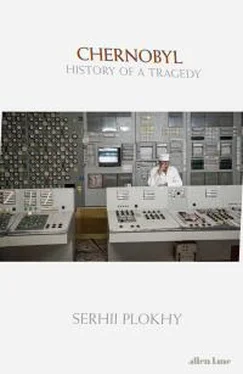
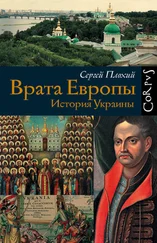
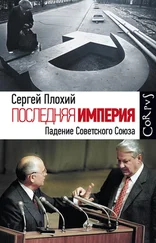



![Сергей Плохий - Чернобыль - История ядерной катастрофы [litres]](/books/385171/sergej-plohij-chernobyl-istoriya-yadernoj-katastrof-thumb.webp)
![Сергей Плохий - Человек, стрелявший ядом [История одного шпиона времен холодной войны]](/books/405163/sergej-plohij-chelovek-strelyavshij-yadom-istoriya-od-thumb.webp)

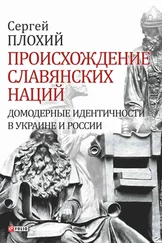
![Сергей Плохий - Потерянное царство. Поход за имперским идеалом и сотворение русской нации [c 1470 года до наших дней]](/books/433093/sergej-plohij-poteryannoe-carstvo-pohod-za-impersk-thumb.webp)
